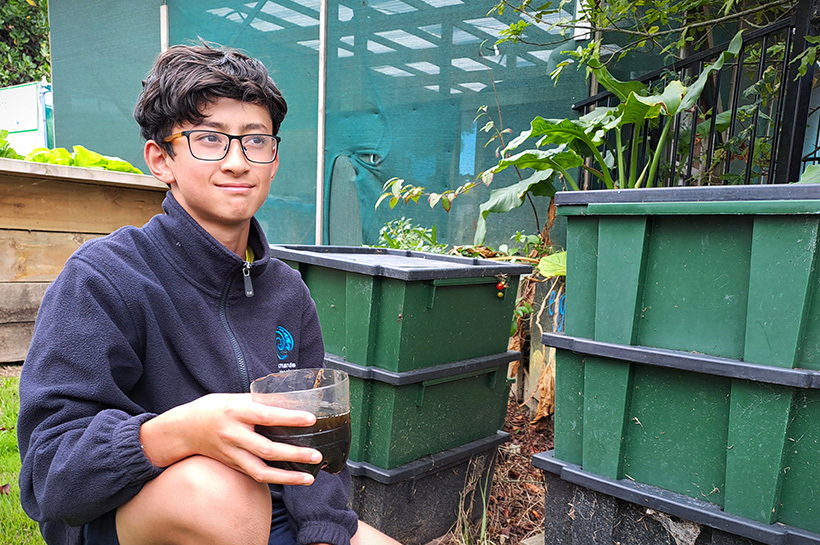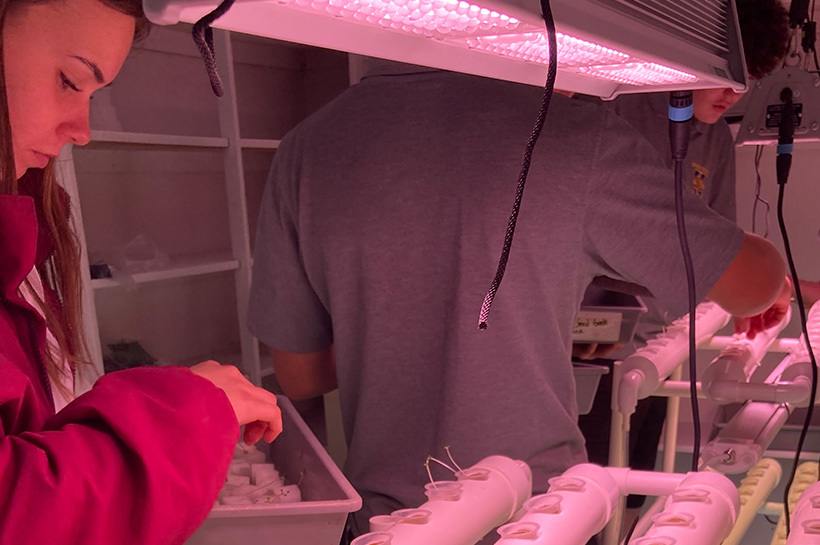Students are decarbonising their schools under an Auckland Council Sustainable Schools’ climate action programme.
Mana Ora was launched last year to inspire young people to plan school sustainability projects.
Three Franklin schools joined the pilot, Maraetai Beach, Beachlands and Waiuku College.
Franklin Local Board chair Angela Fulljames says local opportunities to respond to climate change are important.
“Participating in climate action is something we tested when developing our local board plan, and our communities told us that it was important.
“It’s great to see the Enviroschools programme delivering that for our young people to get them involved in meaningful climate action.”
Sustainable Schools team manager Bridget Glasgow says an evaluation has found students were surprised to see how many ways there were for them to act, and how easy it was.
“Extreme weather brought climate change to the fore, and the pilot helped communicate transport and climate connections, and explored energy and food security.”

Maraetai Beach launched Project Waho as a building was being completed, leaving an outdoor area in need of care that teacher Jane Suckling developed with students.
She took three to the Mana Ora launch, where they explained their idea of creating an outdoor classroom made up of themed gardens.
Feedback was sought about the plants and insects that could be encouraged, leading to fruit, butterfly, lizard, a Māori medicinal space, and a sensory garden being installed.
The outdoor classroom is developing well, and Project Waho contributed to the school attaining Green-Gold status in the Enviroschools programme.
Nearby Beachlands is also a Green-Gold Enviroschool. Its Kaiawa Gardens house raised vegetable beds, beehives, a chicken coop, and a large-scale hot composting system.
Through Mana Ora, it was able to streamline the composting and generate revenue.
Year seven and eight ‘Education for Sustainability’ students worked with technology teacher Linda Le Verne, conducting a waste audit that revealed 79% of the school’s waste could have been kept out of landfill, including the nearly 5kg of food scraps and compostable paper created each day.
Although the school had purchased a hot compost system, the students knew the collection process needed improvement, leading to a series of buckets being purchased so teachers could take ownership of scrap collections in their areas, with the students collecting them for processing.
It did not stop there, with the students creating a funding source to reinvest into more projects by buying extra bins, learning to care for tiger worms, and selling worm tea.

During Plastic Free July, they also sold produce bags made from discarded curtains.
Because of hot-composting’s processing power, Beachlands is on its way to being a composting hub, with families and neighbours invited to bring in their household waste.
And at Waiuku College, science teacher Tina North turned year 12 and 13 students into environmental prefects, using her connections to engage them in writing a Climate Action Fund application centred on renewable energy.
Students wrote about their climate concerns, while also outlining their interest in learning about solar technologies and their potential for integration with irrigation systems.
Funding was secured but ultimately the plan changed, and the money was invested in an existing hydroponics project.
Led by horticulture teacher Doug Johnson, year 11 primary industry students built a vertical hydroponic garden, using water supply systems, the extra funding allowing them to develop a propagation room and buy more equipment, including solar panels for the growing tube lights, and a rainwater collection tank.
Sustainable Schools advisor Kylee Hanlon-Judd was delighted with the project.
“So much has been learned about nutrients, about how to deal with algae, and how to optimise growing conditions. The community wants energy and food security, and this project explores both. It’s something that can be showcased and replicated.”
The evaluation is here, and more on Mana Ora is here.
Stay connected
Sign up for your Local Board E-news and get the latest news and events direct to your inbox each month. Or follow us on Facebook.

